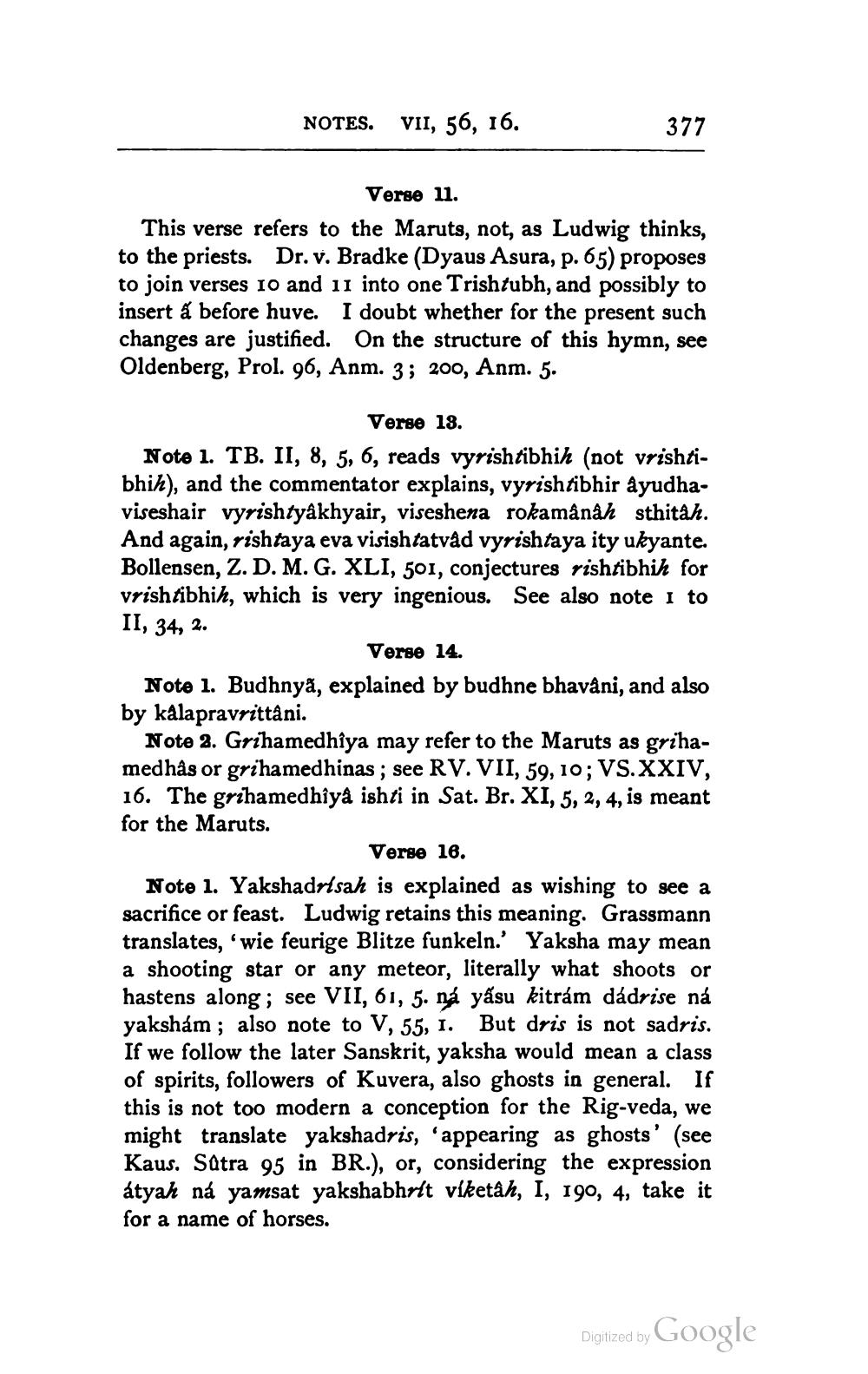________________
NOTES. VII, 56, 16.
377
Verse u. This verse refers to the Maruts, not, as Ludwig thinks, to the priests. Dr. v. Bradke (Dyaus Asura, p. 65) proposes to join verses 10 and 11 into one Trishtubh, and possibly to insert a before huve. I doubt whether for the present such changes are justified. On the structure of this hymn, see Oldenberg, Prol. 96, Anm. 3; 200, Anm. 5.
Verse 18. Note 1. TB. II, 8, 5, 6, reads vyrishtibhih (not vrishtibhih), and the commentator explains, vyrishtibhir ayudhaviseshair vyrishtyâkhyair, viseshena rokamânah sthitàh. And again, rishtaya eva visishtatvad vyrishtaya ity ukyante. Bollensen, Z. D. M. G. XLI, 501, conjectures rishtibhih for vrishtibhih, which is very ingenious. See also note i to II, 34, 2.
Verse 14. Note 1. Budhnya, explained by budhne bhavâni, and also by kalapravrittani.
Note 2. Grihamedhiya may refer to the Maruts as grihamedhås or grihamedhinas; see RV. VII, 59, 10; VS. XXIV, 16. The grihamedhîya ishti in Sat. Br. XI, 5, 2, 4, is meant for the Maruts.
Verse 16. Note 1. Yakshadrlsah is explained as wishing to see a sacrifice or feast. Ludwig retains this meaning. Grassmann translates, wie feurige Blitze funkeln.' Yaksha may mean a shooting star or any meteor, literally what shoots or hastens along ; see VII, 61, 5. na yasu kitrám dádrise na yaksham; also note to V, 55, 1. But dris is not sadris. If we follow the later Sanskrit, yaksha would mean a class of spirits, followers of Kuvera, also ghosts in general. If this is not too modern a conception for the Rig-veda, we might translate yakshadris, 'appearing as ghosts' (see Kaus. Sätra 95 in BR.), or, considering the expression átyah na yamsat yakshabhrlt víketah, I, 190, 4, take it for a name of horses.
Digitized by
Digized by Google




